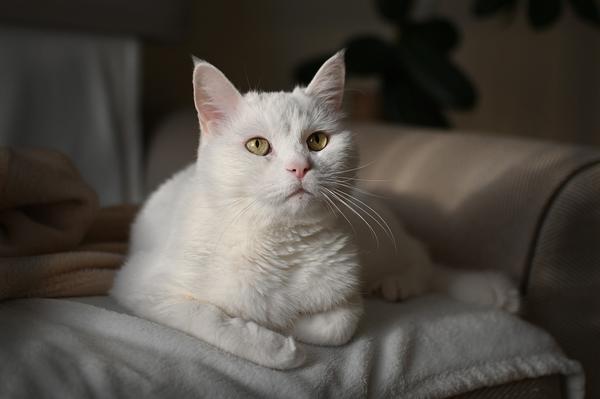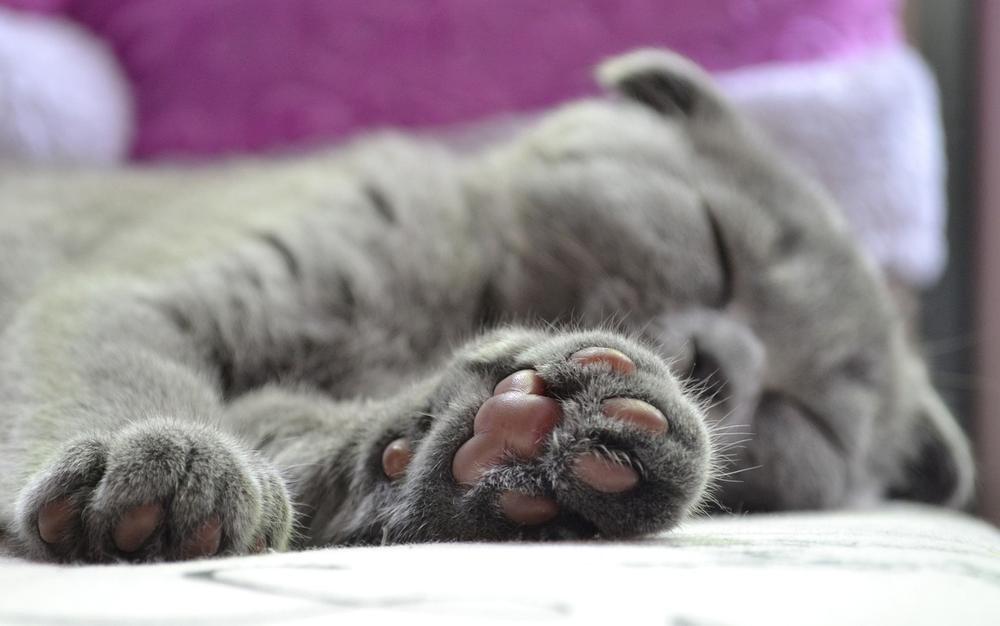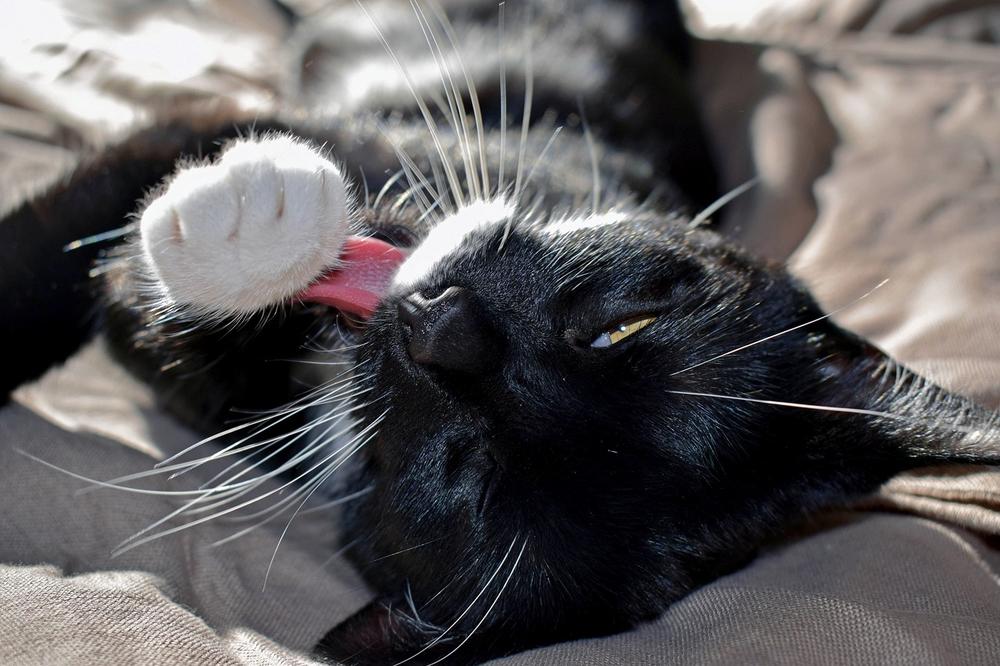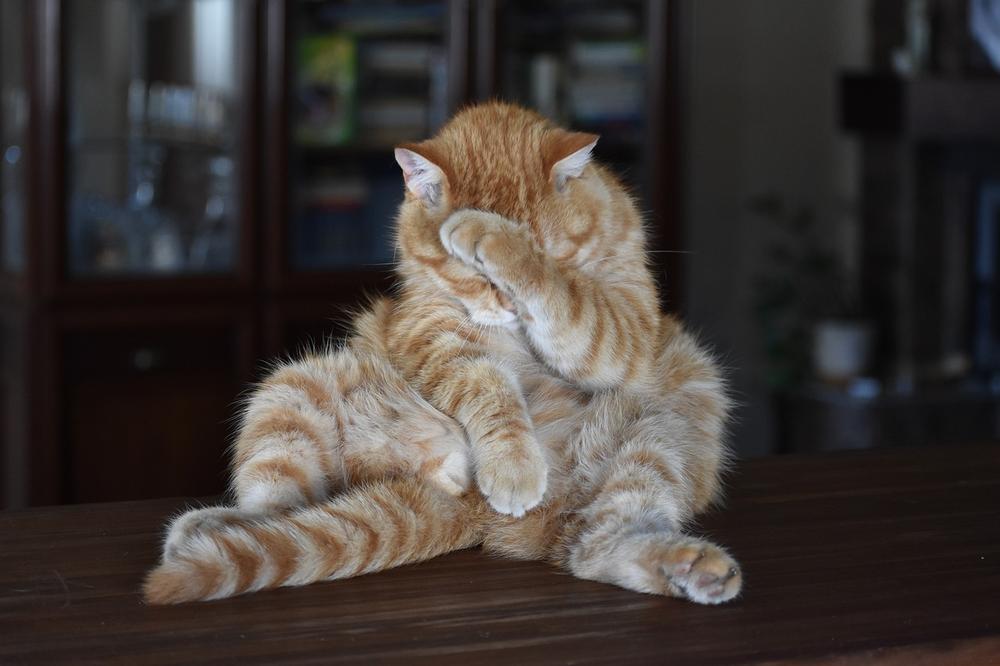Why Does Your Cat Bite Your Feet? Reasons and How to Stop It

Ever wake up in the dead of night, only to find your precious paws under attack?
The sudden, sharp sting of your feline companion sinking their teeth into your tender tootsies?
Yeah, it's enough to make you scream – and maybe even cry.
You're not alone, my friend.
I've been there, nursing the wounds inflicted by the feline jaws of doom.
But fear not, because today we're going to dive headfirst into the mysterious realm of cat behavior and unlock the secrets behind why our furry friends delight in gnawing on our feet.
Ready?
Let's commence this journey of furry foot carnage. 😼
Reasons and Solutions to Stop Your Cat Attacking Feet
Here's the deal.

Your cat might attack your feet for a few reasons, but I've got you covered with some solutions.
Check this out:
- Your cat could be scared or defensive, so create a calm and safe space for them. Make sure they have hiding spots and ways to relieve stress.
- It might also be territorial behavior. Give your cat enough personal space where they feel secure.
- If your cat attacks your feet during playtime, use appropriate toys to redirect their instincts. Have regular interactive play sessions with them.
- Pay attention to your cat's good behavior and give them plenty of love and affection. This way, they won't attack your feet just to get your attention.
- Watch out for signs of overstimulation like tail flicking or dilated pupils. Remove your cat from those situations before they go for your feet.
- Take your cat for check-ups to make sure there are no underlying medical issues causing them pain or discomfort.
- Lastly, prevent boredom by providing mental and physical stimulation. Get them toys, scratching posts, and interactive feeding puzzles to keep them entertained and away from your feet.
Believe me, once you follow these tips, you'll save yourself from a lot of toe agony! 😺
Main points I'll expand upon further down this article:
- Sudden changes in behavior may indicate underlying health issues.
- Signs of aggression in cats include dilated pupils and raised back hairs.
- Cat bites should be promptly treated to avoid infections.
- Cats bite feet for various reasons, such as affection, play, and hunting instincts.
- Providing attention, affection, and playtime can reduce biting behavior.
- Understanding a cat's body language can improve interactions.
- Feeding cats in locations other than the kitchen can prevent foot biting.
- Mental stimulation through toys can prevent boredom-related biting.
- Reacting calmly to kitten biting during play can discourage the behavior.
- Redirecting attention and energy through toys and positive reinforcement is key.
Is Your Cat Unwell?
Is your cat acting up? 😾
Well, it might be time to pay attention to their behavior, as it could be a sign that something is wrong. Here are some things to look out for:
- Increased aggression can be a sign of underlying pain or medical conditions such as hormone changes or hyperthyroidism. It's important to address this with a vet.
- If your cat is showing signs of aggression, such as dilated pupils, flattened ears, raised back hairs, and an upright tail, it's essential to take action.
- Territorial or attacking behavior should not be ignored. These sudden changes can indicate health issues and need to be discussed with a veterinarian for evaluation.
- If the aggression appears to stem from stress or anxiety, it's recommended to make a veterinary appointment for further assessment and potential treatment.
Sudden behavioral changes in a cat can be a red flag that something is amiss.
Don't hesitate to reach out to a professional for assistance and guidance.
Your cat's well-being is worth it.
Let me spell it out for you: If you're wondering about your cat's play biting behavior, keep reading further down the blog post for more information. I advise you to stay tuned for valuable insights and solutions.
But what happens if you don't address your cat's biting behavior?
Well, let me tell you why proper treatment of cat bites is absolutely essential for both you and your furry friend...
Are Cat Bites Dangerous?
Cat bites require immediate attention to prevent infections caused by their sharp teeth and claws. Proper treatment is necessary to avoid serious health issues.

Tolerating a cat's aggressive behavior can lead to significant damage, so addressing cat bites promptly is crucial.
The risk of infection should not be underestimated as injuries from cat bites can have severe consequences on your all in all well-being.
Ensuring that you take the necessary steps for proper treatment will help minimize the chance of complication and protect your health.
Some Cats Play Bite
Some cats play bite, and you ought to understand the reasons behind this behavior.
Here are some key points to consider:
- Differentiate between playful bites and aggressive bites: Playful bites are usually gentler with no intent to harm, while aggressive bites are more forceful and can cause injury.
- Cats may bite feet as a way of showing affection or seeking attention.
- Mimicking hunting instincts: Biting feet resembles their prey, triggering their natural hunting instincts.
- Boredom often leads to foot biting, so providing mental stimulation through toys and activities can reduce this behavior.
- Feeding cats in areas other than the kitchen helps prevent feet biting during meal times.
- It’s crucial to understand a cat’s body language to tell if they are being playful or displaying aggression.
- Kittens go through a biting phase when learning appropriate bite pressure, so it’s essential not to overreact or encourage the behavior.
- Providing plenty of toys and enrichment activities keeps cats entertained and less likely to bite toes.
- Overstimulation can lead to aggression, so respecting a cat's need for rest after extended playtime is vital.
Understanding a cat's behavior goes a long way in improving interactions and preventing unwanted biting.

But here's the interesting part...
Biting behavior in cats can also be a sign of affection.
In the next section, we will delve deeper into the signals that indicate love and ways to differentiate between playful biting and aggressive behavior.
Stay tuned to discover how your furry friend may be expressing their adoration towards you:
Affection Bites
You gotta watch out for signs of love from your cat, especially when it comes to their biting.
Here's what you need to know:
- Mama cats use gentle bites to teach kittens about affection.
- Kittens might bite in the same way towards family members they dig.
- Biting isn't always a sign of aggression; it can show love too.
- Gentle nibbling is like how mama cats groom their babies.
- Some felines think that biting feet means they're being affectionate .
So, if your kitty takes a small nibble at your feet, don't sweat it!

It could be their cute way of saying "I love you." But hey, remember to set limits and redirect this behavior if it gets too rough or painful.
Offer other ways for your furry buddy to show affection, like cuddles or playing games together.
Always bear in mind that getting your cat's distinct way of communicating is crucial for keeping a strong bond between you and your whiskered pal.
Cats Bite for Attention
| Possible Reasons for Biting | Solutions |
|---|---|
| Seeking attention from the owner | Engage in interactive play sessions |
| Expressing hunger or thirst | Ensure regular feeding schedule |
| Overstimulation or play aggression | Provide appropriate toys for play |
| Desire for companionship | Consider adopting a second cat |
| Request for food or access | Respond to their needs accordingly |
| Lack of mental or physical stimulation | Provide enrichment activities |
Cats bite because they want and need attention.
They can be sneaky when they do it.
Sometimes, they'll attack your feet like a ninja warrior.
They don't want to hurt you. It's a sign of hunger or thirst.
Or maybe they just want some quality time with you.
Yes, your cat is trying to communicate through those little bites. They might want more playtime or their food bowl is running low.
So, pay attention to how they behave.
They could just want your attention or something specific.
Maybe they want to explore that closed room there.
To make your kitty happy, spend dedicated one-on-one time together each evening.
It will show them love and fulfillment.
And don't forget, always listen to what your cat is saying...even if it's through a bite.
And you know what? In case you're wondering why your cat waits outside your bedroom door, I have just the article for you.
Discover the possible explanations and solutions in my blog post Why Does My Cat Wait Outside My Bedroom Door.
Trust me, it's a valuable resource for alleviating your curiosity, concerns, and frustration.
Take a peek, you won't regret it!
How to Stop Your Cat Biting Your Toes
If your cat is constantly going after your toes like they're a tasty treat, you need to put a stop to it.

Redirecting their attention and energy is key in breaking this habit.
Utilizing positive reinforcement techniques will help get the message across.
Here are some practical strategies you can try:
- Use toys or distractions to redirect their focus away from your feet. A dangling feather or catnip-filled toy can work wonders.
- Employ attention-getting techniques like clapping your hands or making a loud noise to startle them when they go for your toes.
- Avoid physical abuse. Physical punishment is not only cruel but ineffective with cats. Opt for species-specific methods like hissing or firmly saying "no."
- If necessary, use mild discipline like blowing breath into their face. This can deter them from biting without causing harm.
- For specific situations like sleeping or working, consider wearing socks to bed or keeping your feet under covers to protect them from playful nibbles.
- Finally, engage in non-reactive behavior by ignoring the biting and removing yourself from the situation. Cats seek attention, so depriving them of that can discourage the behavior.
Give these techniques a try, and with consistent effort, you can train your cat to keep their teeth away from your precious toes.
And that wraps up today's article.
If you wish to read more of my useful articles, I recommend you check out some of these: Why Does My Cat Howl Before After Using the Litter Box, Why Cat Keeps Meowing at Door, Why Does My Cat Purr Constantly, Why Does My Cat Scratch the Window, and Cat Behavior After Mating
Talk soon,
-Sarah Davis